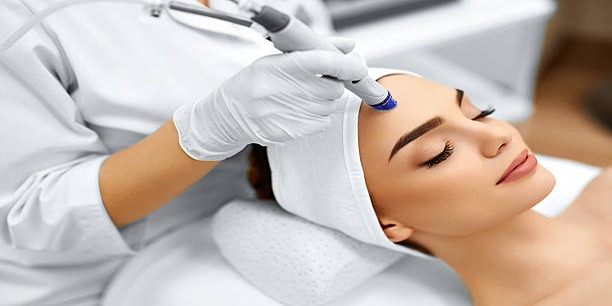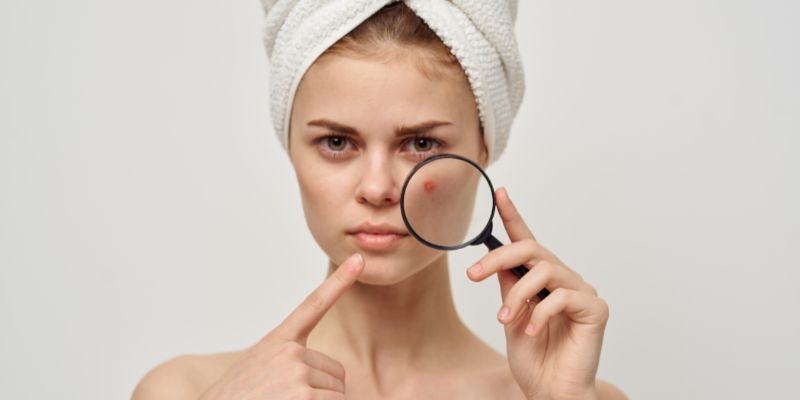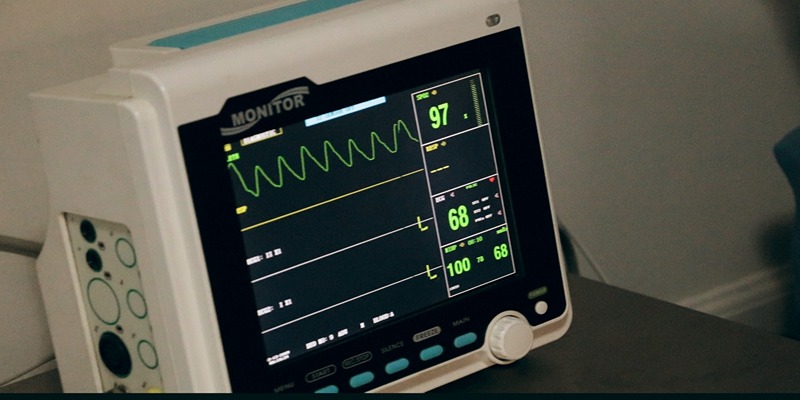Combatting Dermatoporosis: The Latest Advances in Skincare Treatments
Mar 03, 2024 By Nancy Miller
As the body ages, the skin undergoes a myriad of changes, resulting in conditions such as dermatoporosis—a term referring to the extreme fragility of the skin often observed in the elderly. This condition not only affects aesthetics but also significantly increases the risk of skin injuries, infections, and chronic wounds. Combatting dermatoporosis requires a multi-faceted approach that encompasses protective measures, nutritional optimization, and innovative treatments that aim to enhance skin density and resilience. Recent advances in skincare treatments, including novel topicals, cutting-edge laser therapy, and breakthroughs in regenerative medicine, offer new hope for those affected. By capitalizing on these advancements, individuals can look forward to improved skin health and a higher quality of life even into their senior years.
What is Dermatoporosis?

Dermatoporosis is a skin condition that arises due to structural and functional changes in the skin as a result of aging. It is characterized by thinning, atrophy, and increased fragility of the skin, making it more prone to tears, bruises, and chronic wounds. This condition primarily affects individuals over the age of 60, with women being at a higher risk due to hormonal changes associated with menopause.
Causes of Dermatoporosis
The exact cause of dermatoporosis is not yet fully understood, but researchers have identified several contributing factors. These include:
- Loss of elasticity and collagen in the skin due to decreased production as we age
- Decrease in hormonal levels, particularly estrogen, which plays a vital role in maintaining skin health
- Long-term exposure to ultraviolet (UV) radiation from the sun
- Repeated mechanical trauma to the skin, such as friction and pressure from clothing or medical devices
- Inadequate nutrition, particularly insufficient intake of protein, vitamin C, and zinc, which are crucial for maintaining skin integrity
Recognizing the Signs of Dermatoporosis
Dermatoporosis presents with specific physical characteristics that distinguish it from normal skin aging. These include:
- Visible thinning of the skin, especially in areas prone to friction and pressure such as the hands, arms, legs, and feet
- Easily bruised or torn skin even with minor trauma
- The appearance of chronic wounds or ulcers that take longer than usual to heal
- Increased visibility of blood vessels due to the loss of fat tissue under the skin
If you or a loved one exhibit any of these symptoms, it is essential to consult a dermatologist for proper diagnosis and treatment.
Treatment Options for Dermatoporosis
Dermatoporosis treatment aims to improve skin health and prevent further damage by addressing the underlying causes of the condition. Some common treatment options include:
- Protective measures such as wearing protective clothing, avoiding excessive sun exposure, using gentle skincare products, and regularly moisturizing the skin.
- Nutritional optimization by incorporating a well-balanced diet rich in protein, antioxidants, and essential vitamins and minerals into your daily routine.
- Topical treatments that target specific symptoms of dermatoporosis, including retinoids to stimulate collagen production, moisturizers to improve skin hydration, and corticosteroids to reduce inflammation.
- Laser therapy, which uses focused beams of light to stimulate collagen production and improve the appearance of thinning skin.
- Regenerative medicine treatments such as platelet-rich plasma (PRP) therapy or stem cell therapy, which harness the body's natural healing processes to promote skin regeneration and improve skin density.
The Future of Dermatoporosis Treatment
While there is currently no cure for dermatoporosis, ongoing research and technological advancements in the field of skincare offer promising developments for the future. These include:
- Continued improvement and refinement of existing treatments such as laser therapy and regenerative medicine techniques.
- Development of new topical treatments with targeted ingredients to address specific aspects of dermatoporosis.
- Advancements in the use of artificial intelligence and machine learning to identify patterns and risk factors for developing dermatoporosis, leading to earlier intervention and prevention.
Nutritional Supplements and Dietary Changes for Skin Health
In addition to incorporating a well-balanced diet, certain nutritional supplements and dietary changes may also aid in combating dermatoporosis. These include:
- Omega-3 fatty acids, which have anti-inflammatory properties and can improve skin hydration.
- Vitamin C, which plays a crucial role in collagen production and wound healing.
- Zinc, which is essential for maintaining skin integrity and promoting tissue repair.
It is essential to consult with a healthcare professional before starting any new supplement or making significant dietary changes.
Preventive Measures and Lifestyle Modifications

While dermatoporosis is not entirely preventable, certain lifestyle modifications can help reduce the risk and severity of this condition. These include:
- Regular exercise to improve overall health and maintain strong bones, which support healthy skin.
- Quitting smoking, as it accelerates skin aging and decreases collagen production.
- Avoiding excessive sun exposure and using adequate sunscreen when outdoors to reduce UV damage to the skin.
- Managing chronic conditions like diabetes, which can increase the risk of skin damage and slow down wound healing.
By taking proactive measures and making simple lifestyle changes, it is possible to delay or even prevent the onset of dermatoporosis. As always, consult with a healthcare professional for personalized recommendations based on your specific needs and medical history.
Conclusion
Dermatoporosis is a common condition that affects aging skin, particularly in individuals over the age of 60. While there is currently no cure for this condition, various treatment options and preventive measures can help improve skin health and reduce the risk of further damage. By understanding the causes, recognizing the signs, and making lifestyle modifications, we can take better care of our skin and maintain its health and vitality for years to come. So, let's embrace the aging process and prioritize our skin's health as we journey through life. It is never too late to start taking care of our skin!

Sugar Smart: 8 Strategies Dietitians Use to Moderate Daily Sugar Intake

Folate Vs. Folic Acid - Why The Difference Matters

How Drinking a Gallon of Water Every Day Transformed My Skin

The Grave Reality Behind Snoring

Why Am I Breaking Out? 8 Sneaky Causes of Acne - From Secrets to Solutions

Unlocking the Potential of Cardiac Rehab for Lifelong Health and Longevity

Top 8 Salicylic Acid Face Washes for Dry Skin


